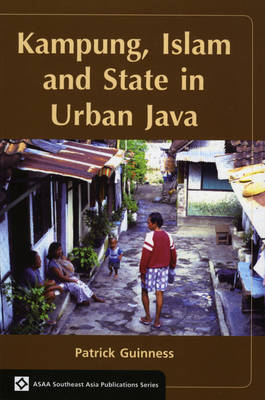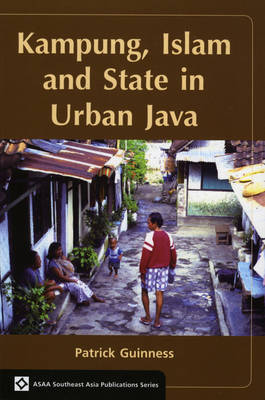
- Retrait gratuit dans votre magasin Club
- 7.000.000 titres dans notre catalogue
- Payer en toute sécurité
- Toujours un magasin près de chez vous
- Retrait gratuit dans votre magasin Club
- 7.000.0000 titres dans notre catalogue
- Payer en toute sécurité
- Toujours un magasin près de chez vous
112,95 €
+ 225 points
Format
Description
The nature of community in urban Java changed dramatically during the economic and political transition that followed the fall of the Soeharto regime in Indonesia, although the community continues to provide a rallying point for urban low-income residents in the off-street neighbourhoods (kampong) in Yogyakarta and in other cities of Java. Under Soeharto, kampung residents both cooperated in the supervision of their lives by the state and explored forms of sociality that gave some protection from collusion with the state. With the demise of the New Order and the rise of policies promoting decentralization, urban society changed under the impact of political reform, globalization, global and local patterns of consumerism, and kampung expression of community. Patrick Guinness, who began studying the kampung settlements of Yogyakarta more than 30 years ago, examines these processes in terms of economic, political and ritual patterns, and from the perspectives of kampung leaders and entrepreneurs, kampung youth, formal and casual labor, and NGO volunteers working in these neighbourhoods.
Where community was once examined on the basis of romantic and mistaken assumptions about the homogeneity and compactness of what are often disparate collections of neighbours, it has been seen more recently as a construction of the nation-state in its bid to control and develop its citizens, as a construction of the local populace in their negotiations with or opposition to the state, and as a mechanism enabling local residents to cope with the pressure of state and market demands on them, although each of these interpretations if slavishly followed distorts the complex relations of kampung people with the state.
Where community was once examined on the basis of romantic and mistaken assumptions about the homogeneity and compactness of what are often disparate collections of neighbours, it has been seen more recently as a construction of the nation-state in its bid to control and develop its citizens, as a construction of the local populace in their negotiations with or opposition to the state, and as a mechanism enabling local residents to cope with the pressure of state and market demands on them, although each of these interpretations if slavishly followed distorts the complex relations of kampung people with the state.
Spécifications
Parties prenantes
- Auteur(s) :
- Editeur:
Contenu
- Langue:
- Anglais
Caractéristiques
- EAN:
- 9789067183482
- Date de parution :
- 01-01-09
- Format:
- Livre broché
- Format numérique:
- Trade paperback (VS)
- Dimensions :
- 150 mm x 226 mm
- Poids :
- 408 g

Les avis
Nous publions uniquement les avis qui respectent les conditions requises. Consultez nos conditions pour les avis.






